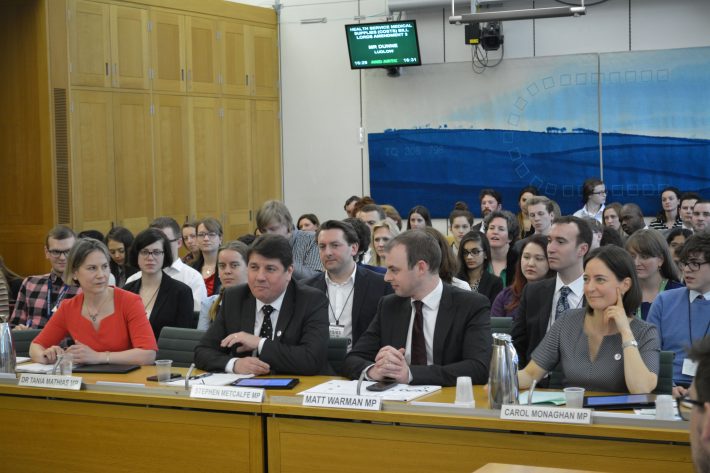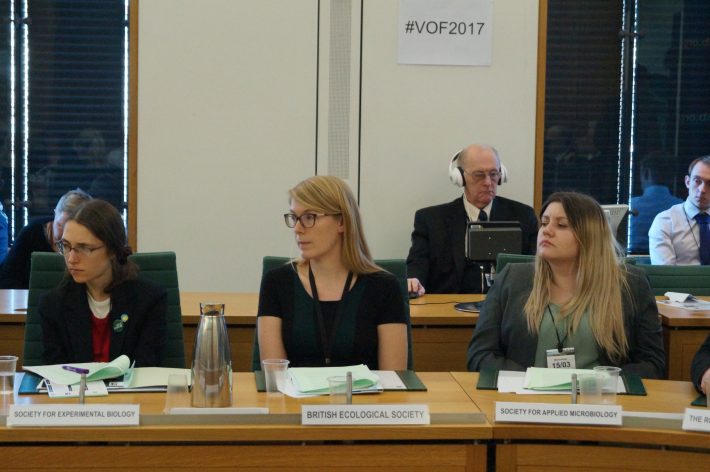Voice of the Future 2017: a scientist’s perspective
Daniella Rabaiotti reports from Voice of the Future, held on Wednesday 15 March 2017 at Portcullis House.

Last Wednesday I had the fantastic opportunity to attend the Royal Society of Biology’s Voice of the Future event – I was one of the lucky BES members chosen to represent the Society. Voice of the Future is a one of a kind event hosted annually that allows young people to ask leading figures within government and Parliament questions relating to science policy in the UK. The event took place in Portcullis House, and whilst I have been in the audience of many evidence hearings there previously, it was a totally different, and awesome, experience sitting in the seats the committees usually take up – getting an MP’s perspective. The really unique aspect of this event, however, is that instead of scientists giving the evidence, this session asks MPs and policymakers to do so instead.
The audience got a chance to question Chi Onwurah MP – the Shadow Minister for Industrial Strategy, Science and Innovation; Sir Mark Walport, the UK Government Chief Scientific Advisor; Jo Johnson MP, Minister of State for Universities, Science, Research and Innovation; and finally members of the Science and Technology Committee – Stephen Metcalfe MP (Chair), Dr Tania Mathias MP, Carol Monaghan MP and Matt Warman MP – about science policy and the role of science in government and parliament.

From driverless cars to STEM careers
The questions were very diverse, ranging from the ethical implications around driverless cars to encouraging women and minorities to pursue and stay in STEM careers. Brexit, of course, was the most common topic of the questions asked, including questions around environmental protections post-Brexit, preventing a brain drain in UK Science, the lack of a scientific advisor in the Department for Exiting the EU, and plugging funding gaps left behind once we exit the EU. The overall consensus from the event was that the government is not looking to weaken environmental protections – and if they do the panellists would not be in support of that – and that Brexit provides an opportunity to push for more stringent legislation where there is evidence for it.
Something that came up a number of times was the encouragement of private funding and sponsorship, as well as replacing funding gaps with UK government funds in areas that promote and encourage economic growth. This was interesting from an ecology standpoint, as so often our research doesn’t have direct economic impacts, and rarely secures funding from industry or private companies other than NGOs. Although it is clear that the government and non-government members of parliament are seriously considering funding and skills shortfalls post-Brexit, it appears that ecology, and the ways in which it differs from some of the more prominent science fields, may be being overlooked.
Experts still required
One major take-home message from the event was that scientific expertise is key in parliament, and expertise is still valued and welcome. However, one point made by the Science and Technology committee – when asked about the low number of MPs with a background in science – was that the real way to make a difference and to champion science in parliament is for more scientists to stand as MPs, something most of them wholeheartedly recommended.
Like what we stand for?
Support our mission and help develop the next generation of ecologists by donating to the British Ecological Society.